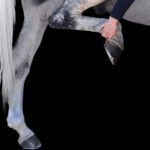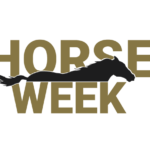September 8, 2009 — Former U.S. Equestrian Team Chairman Finn Caspersen, who died Monday, is remembered for many things, but in the equestrian community, he will always stand out as the man who put American combined driving on the international map.

“He was a visionary. He saw what driving in America could be,” said multiple U.S. four-in-hand national champion Chester Weber.
“Finn put in what he could, financially and emotionally and with a lot of leadership, both for driving and the whole U.S. team,” commented Tucker Johnson, another top four-in-hand driver and one of Caspersen’s close friends. “He supported various endeavors and helped them be more than they were without him.”
Caspersen, 67, who lived in New Jersey during his team tenure, was a resident of Jupiter Island, Fla. He died near his summer home in Westerly, R.I.
He founded the Gladstone Equestrian Association, based at the USET’s headquarters, Hamilton Farm in Gladstone, N.J. For years, it put on the country’s best driving event and in 1993, staged the World Pairs Championship, a triumphant affair that drew Great Britain’s Prince Phillip, former president of the FEI (international equestrian federation) and thousands of spectators. It matched the best of what Europe had to offer in such productions.
Undaunted by the fact that driving in the 1980s was a European-dominated sport, Caspersen welcomed the challenge, and as Chester put it, “was in the forefront” of establishing a significant American presence in the discipline.
In the late 1980s, Caspersen helped send American drivers to Europe, and for those who couldn’t go, he brought the best foreign drivers here to compete and give clinics, an experience that was transformational for many U.S. drivers. His efforts resulted in the U.S. squad winning the gold medal in the 1991 World Pairs Championship, entitling America to host the 1993 renewal, the first such championship ever held in the Western Hemisphere.
“He had a whole lot to do with part of my development as a driver through training programs,” Weber remarked.
Although he wasn’t a horseman himself, Caspersen delighted in riding on the back of a marathon vehicle as a groom/navigator when it was pulled by his own four-in-hand and driven by another former national champion, Bill Long.
“He just loved being a part of it; supporting others and encouraging them to be all they could be,” said Johnson.

As the chairman of the USET, Caspersen successfully fought back against several challenges, including a long-running lawsuit brought by show jumper Debbie Dolan after she felt she was wrongly dropped from the 1990 World Equestrian Games team. He also beat a 1991 proxy battle that attempted to put others in control of the USET, an action stemming from the lawsuit.
Victory wasn’t always in the cards for him, however. Efforts to bring the 2002 World Equestrian Games to New Jersey did not work out when the WEG was awarded to Jerez, Spain. However, Johnson pointed out that having the WEG in Kentucky next year “is an interesting culmination of Finn’s efforts in a way, even though he wasn’t directly involved.”
An attempt to host the World Singles Championship in 2000 was cancelled at the 11th hour because of the West Nile virus. And a brawl in which the USET and American Horse Shows Association faced off over which organization should be horse sports’ U.S. governing body ended with the birth of the U.S. Equestrian Federation, which took over most of the USET’s prerogatives, aside from fundraising for international competition.
He will be remembered, however, for his successes and “educating the drivers in the most demonstrative way,” said Heather Walker, former executive director of the GEA. “Improving the drivers and bringing the public into it, the boutiques, the way everybody was dressed, the whole Ralph Lauren look, that face that Gladstone presented to the world; I can’t imagine where driving would be if Finn hadn’t been behind the wheel with the Gladstone Driving Event. He put a lot of money into it, but it was really his knowledge of how to do things that was important.
“He worked harder than anybody. He helped all kinds of people, there were things that was never publicized that Finn did.”
Much of it did not have to do with the horse world. A Harvard-educated lawyer, Caspersen’s philanthropy spread far beyond the boundaries of equestrianism. The chairman of Beneficial Corp., he was involved with everything from the sport of rowing to the Boy Scouts of America and Ellis Island, causes which benefitted from his knowledge and spirit.
“I don’t think you could find someone more philanthropic or caring,” said Johnson.
Caspersen is survived by his wife, Barbara; four sons and numerous grandchildren.
Johnson, who was headed today to compete in Donaueschingen, Germany, with his four-in-hand, is dedicating his efforts there to Caspersen.
“I will be thinking about Finn a lot this last year of my competitive driving as I lead up to (the WEG in) Kentucky and my retirement from international driving. I hope my performance is adequate to live up to his reputation,” he said.





